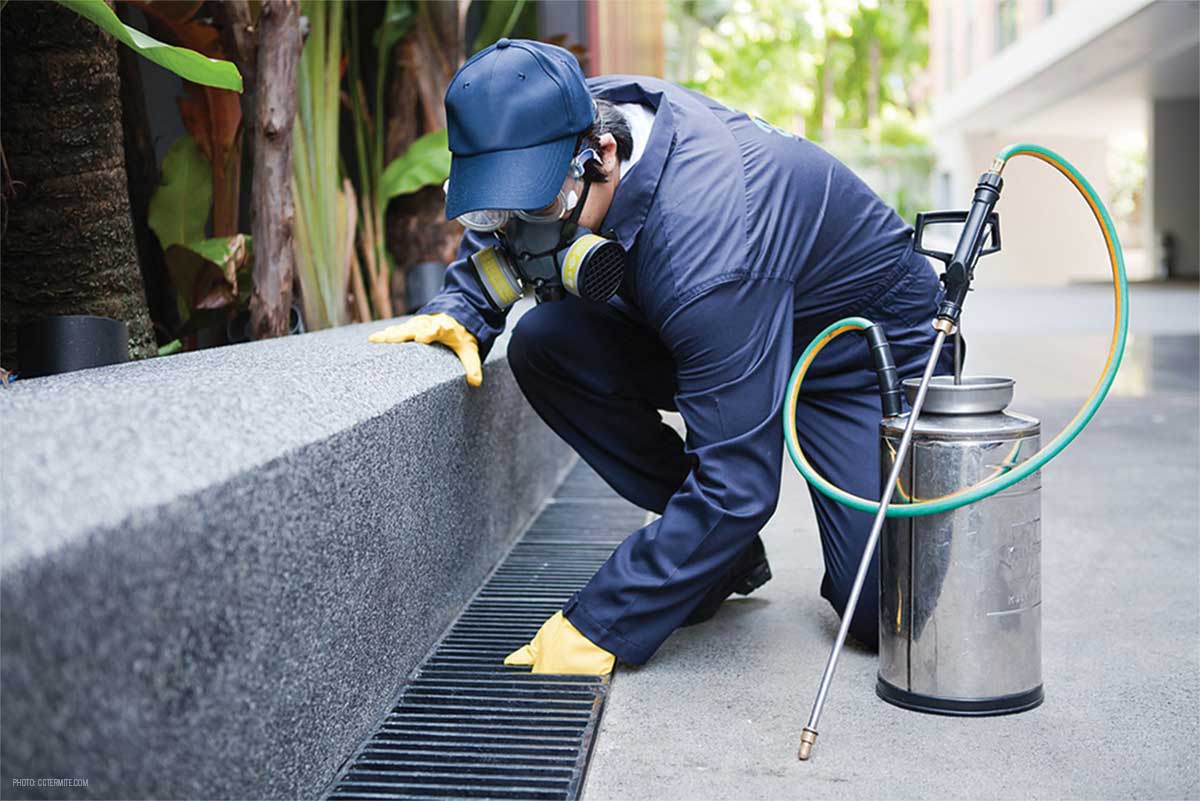Specialist Pest Control Techniques for Long-Term Outcomes
Specialist bug control methods envelop a thorough technique that begins with a comprehensive examination and assessment, followed by accurate bug recognition to recognize their habits patterns. The implementation of Integrated Bug Monitoring (IPM) concepts, combined with eco-conscious treatments, forms the cornerstone of sustainable bug elimination.
Inspection and Evaluation
Upon entering a property for pest control solutions, the initial action is a comprehensive assessment and evaluation to determine the extent of the invasion and establish the most reliable treatment strategy. Expert insect control technicians are trained to diligently examine the premises, trying to find indications of bug task such as droppings, gnaw marks, nests, or any kind of architectural damage. They will also examine the problems that may be bring in parasites, such as food resources, water leaks, or access factors.

Pest Identification and Actions

Furthermore, understanding the actions of the recognized bug is essential to carrying out reliable control measures. Knowing where insects nest, what they feed on, and their activity patterns can help pest control professionals develop strategies to eliminate them efficiently. Some pests may be nighttime, while others are a lot more energetic throughout the day. This understanding enables for the application of treatments at optimal times for maximum effectiveness.
Integrated Insect Management (IPM)
Integrated Parasite Administration (IPM) methods combine multiple techniques to control and protect against parasite infestations in a sustainable and ecologically pleasant fashion. Pest control Washington DC. By integrating techniques such as biological control, environment adjustment, modification of social methods, and making use of resistant varieties, IPM intends to minimize the usage of chemical pesticides
One of the essential principles of IPM is the emphasis on prevention. This proactive method includes surveillance pest populaces routinely to spot any type of prospective concerns prior to they intensify. By recognizing pest problems at an early stage, pest control measures can be executed swiftly and effectively.
Moreover, IPM promotes making use of non-toxic pest control techniques whenever feasible. This can consist of utilizing natural killers of the parasites, presenting valuable pests, or utilizing pheromones to interfere with breeding patterns. By lowering dependence on chemical pesticides, IPM not just protects the setting however also helps keep a balance in the environment.
Environmentally-Friendly Therapies
Applying eco-conscious methods in insect control treatments can properly resolve problems while prioritizing environmental sustainability. Environmentally-friendly therapies focus on minimizing the impact of pest control methods on communities, non-target microorganisms, and human health. These methods often include using natural predators, such as ladybugs or nematodes, to control pest populations, minimizing the demand for chemical treatments. Additionally, techniques like habitat control, such as changing dampness degrees or removing food sources, can aid hinder insects without making use of damaging substances.
Another key element of environmentally-friendly treatments is using natural and naturally degradable products that damage down swiftly without leaving dangerous residues in the environment. Agricultural pesticides stemmed from plants like chrysanthemums or neem use effective insect control while posing marginal risk to non-target types. Moreover, utilizing techniques like heat treatments or scent catches can target specific parasites with precision, decreasing the general environmental impact of parasite control techniques.
Ongoing Tracking and Upkeep
Routine inspections by skilled pest control near me professionals are needed to identify any signs of insect activity, analyze the performance of previous therapies, and make adjustments to the insect control strategy as required. By checking pest populations over time, insect control experts can track patterns, anticipate possible issues, and apply preventative procedures to lessen the threat of future problems.
Along with monitoring, maintenance techniques are important for long-lasting insect control success. This includes implementing correct hygiene measures to get rid of possible food and water resources for pests, sealing entrance indicate prevent parasites from going into the facilities, and addressing any type of structural problems that can facilitate bug problems (pest control near me). By integrating continuous surveillance and maintenance right into an integrated insect administration strategy, companies can make certain a pest-free environment and secure their property against expensive damage and health threats
Verdict
Finally, utilizing specialist pest control techniques such as detailed evaluation and evaluation, accurate insect recognition and understanding of their behavior, integrated bug management techniques, environmentally-friendly treatments, and recurring surveillance and maintenance are vital for attaining long-term results in insect control. By applying these methods, individuals can efficiently handle parasite problems and maintain a pest-free environment in a lasting fashion.